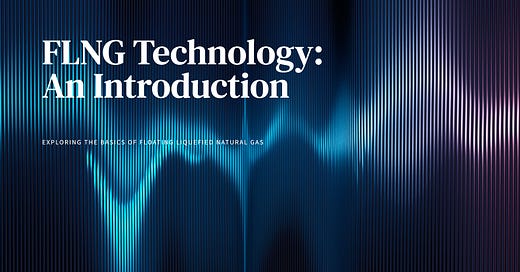An Introduction to FLNG Technology
Floating Liquefied Natural Gas (FLNG) technology represents a groundbreaking advancement in the energy sector, enabling the extraction, liquefaction, storage, and offloading of natural gas at sea. This technology bypasses the need for extensive onshore infrastructure, making it a game-changer for accessing remote offshore gas fields that were previously considered economically unviable.
Key Benefits of FLNG
Mobility and Flexibility: FLNG units can be relocated to different gas fields, optimizing resource utilization and extending the life of offshore gas fields.
Cost Efficiency: By eliminating the need for extensive onshore facilities and long pipelines, FLNG reduces capital expenditure and operational costs. This is particularly beneficial for developing countries or regions with limited infrastructure.
Environmental Impact: FLNG technology minimizes the environmental footprint compared to traditional gas extraction and processing methods. The offshore location reduces the impact on coastal areas and local communities.
Speed to Market: FLNG units can be deployed more quickly than onshore LNG plants, allowing for faster monetization of gas reserves.
FLNG in Action
Technip Energies and Shell are at the forefront of FLNG technology. Technip Energies provides innovative solutions for the energy sector, including engineering, construction, and project management services for FLNG units. Shell's FLNG projects, such as the Prelude FLNG, showcase the practical application and benefits of this technology. The Prelude FLNG, located off the coast of Australia, is the world’s largest floating production structure and demonstrates the feasibility and efficiency of FLNG technology.
Challenges and Future Outlook
Despite its advantages, FLNG technology faces several challenges, including high initial capital costs, complex engineering requirements, and the need for skilled labor. Additionally, safety and environmental concerns must be carefully managed to ensure sustainable operations. However, ongoing advancements in technology and increasing global demand for natural gas are expected to drive further development and adoption of FLNG solutions.
Conclusion
FLNG technology holds significant promise for the future of the energy sector, offering a flexible, cost-effective, and environmentally friendly solution for natural gas extraction and processing. As major industry players like Technip Energies and Shell continue to innovate and expand their FLNG capabilities, this technology is poised to play a crucial role in meeting the world’s growing energy needs.
For more detailed information and training programs on FLNG technology, please visit zcalar.com.





